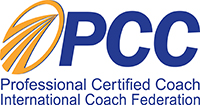Change is a funny thing.
On the one hand, we’re great at imagining the outcomes of change. We dream about the massive success we’ll have, the fame and fortune we’ll experience, or perhaps the perfect job we’ll dedicate ourselves to.
But on the other hand, we’re also great at getting in our own way, before we even try to get there.
We’ve all been there. We tell ourselves that we’ll change when the conditions are just right. When we have the right skills and experience. When we have a big enough safety net. We’ll change when we’re ready—when we feel like changing.
The problem is, those perfect conditions rarely come around.
To change is to do something new, or to do something in a new way. In other words, change is innovation. So when attempting to make a change, we can learn from those whose lifeblood runs on innovation.
Minimum Viable Products (MVPs) are all the rage in Silicon Valley and the startup world. An MVP is a version of a product that isn’t complete, but it’s good enough. It’s functional and it gets the job done, but it’s far from perfect.

The idea is that it’s much more effective to launch an MVP than to wait for until the final, perfected version is complete. That’s because 1) you can start much earlier to get feedback from real customers, that allows you to refine the product, and 2) since the product will never actually be perfect, it’s better to launch early and start creating momentum, than to wait for the hypothetical perfect day to launch the perfect product.
So when trying to change yourself, the same logic applies. Sure, you can wait for the perfect moment to change. Sure, you can wait until you “feel” motivated to change. Sure, you can wait until you feel supremely confident and comfortable about the change. But when will that day come, if ever?
Instead of waiting for the stars to align, you can take a Minimum Viable Action — the smallest possible action you can take that can still lead to the change you want.
For example, let’s say you have a dream of becoming a painter. The idea has tickled you for years. Seeing yourself painting in your own studio has been a tantalizing but distant dream.
Now, you could wait until that beautiful day when the sun is shining, the birds are chirping, and you wake up with nothing else than the desire—and the skills—to become a painter.
Good luck with that.
A more effective way is to take a Minimum Viable Action. For example: sign-up for a painting course, pay for it, and tell people you’re going to attend. This action takes very little effort. But once you’ve done it, it will create momentum all by itself.
Since you’ve invested in it, you’ll want to get your money’s worth, due to the sunk cost bias.
Since you’ve told people you’re going to go to the course, you’ll want to remain congruent with the new identity you’re creating for yourself.
Since you’ve signed up and committed to it, it will take more psychic effort to cancel your spot than to go to the course, due to consistency bias.
And once you’ve gone to the course, you’ll get real feedback on what it means to be a painter. You will actually know whether painting is something you want to pursue further, or if it’s just been an irritating dream that’s distracted you from real life.
Change is rarely all-or-nothing. It’s more often the result of small, barely perceivable mini-actions that together add up to to change. “The beginnings of all things are small,” said Cicero, the Roman politician and orator. Small things lead to slightly less small things, and eventually they lead to real achievements. “Timing, perseverance, and 10 years of trying will eventually make you look like an overnight success,” says Twitter founder Biz Stone.
Minimum Viable Actions work because they put us into motion. They create momentum. And once the process is started we’ll get sucked along for the ride. The tension between today and tomorrow will pull us toward the future. Our cognitive biases will urge us to be consistent with our identities, investments, and proclamations. And instead of being plagued by our feelings of insecurity, we’ll act despite of them.
“When you can learn to take actions despite how you feel about them…that is what is going to change your life,” says recovered alcoholic and now ultra-endurance athlete and author Rich Roll. “It doesn’t matter how you feel about the action; it only matters that you take it. Once you take it, that will shift your mood. But if you sit around, waiting until you feel like doing something, you will be sitting in that chair, waiting, until the day that you die.”
So don’t wait for the perfect conditions to make the change you’re seeking. Instead, take a Minimum Viable Action. Now. “If you want to summarize the habits of successful people into one phrase,” says writer James Clear, “it’s this: successful people start before they feel ready.”
If you don’t feel ready: good. Now is always the perfect time to start.
